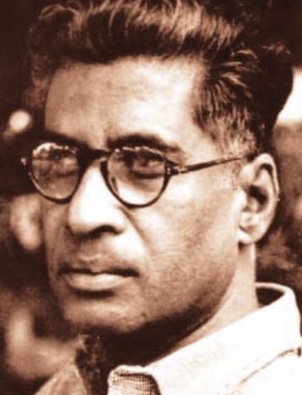On this date (March 21), radical humanist and revolutionary Manabendra Nath Roy (né Narendra Nath Bhattacharya) was born in 1887 near Kolkata, India. The Bhattacharyas were Sakta Brahmins, a family of hereditary Hindu priests.
Roy majored in engineering and chemistry in college and became politically active due to the British partitioning of Bengal in 1905. A failed attempt during World War I to obtain German support for an Indian uprising against imperial rule made Roy a global wanderer, eventually landing him in Mexico via China, Korea, Japan and the U.S.
He became involved in the Mexican Revolution and became part of the international communist movement. Fleeing to the Soviet Union, he barely escaped Stalin’s wrath, only to have British authorities subject him to a harsh five years in prison on his return to India. During World War II, he urged full military support for Great Britain, thinking that the defeat of fascism was of higher priority than Indian independence.
In extensive writings that developed his philosophy of radical humanism, Roy tried to disassociate philosophy from religion and instead combine it with science. He helped create the International Humanist and Ethical Union (now Humanists International) and became one of its first vice presidents in absentia after the accident mentioned below prevented him from attending the inaugural convention in Amsterdam in 1952.
Roy established the Indian Renaissance Institute in the Himalayan foothill city of Dehradun, where the Radical Humanist, a journal he founded, is still published as of this writing in 2024. The movement has had a profound impact on secular thought in India and internationally.
Hermann Bondi, a stalwart of the British Humanist Association, cited Roy as an example of profound intellectual evolution. Acclaimed German-American psychoanalyst and philosopher Erich Fromm, a humanist himself, lauded Roy’s “Reason, Romanticism and Revolution” as a “thorough and brilliant analysis.”
He died of a heart attack at age 66 after undergoing two attacks of cerebral thrombosis sustained falling down a hill in 1952, causing partial paralysis. (D. 1954)


